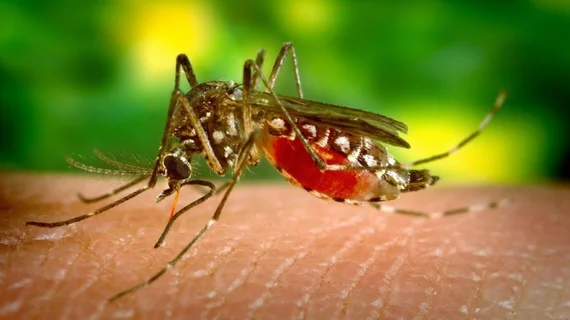Malaria tied to 30% increased risk of HF
Research presented at the ESC Congress in Paris Sept. 2 suggests malaria could be linked to as much as a 30% increased risk of heart failure.
First author Philip Brainin, a postdoctoral research fellow at Herlev-Gentofte University Hospital in Denmark, said that although global organizations have taken steps to reduce the incidence of malaria around the world, it remains a “major burden” that affects some 219 million people each year.
“We have seen an increase in the incidence of malaria cases and what is intriguing is we have seen the same increase in cardiovascular disease in the same regions,” he said in a release.
Brainin and his team used Danish nationwide registries to identify a total of 3,989 malaria cases logged between January 1994 and January 2017. Forty percent of patients, who were on average 34 years old at the time of infection, showed evidence of plasmodium falciparum, a parasite that’s responsible for the majority of severe malaria cases in humans.
Eleven years of follow-up yielded 69 cases of heart failure—considered “very high” compared to the broader population—and 68 cases of cardiovascular death. The rate of cardiovascular death fell within normal range. Although the authors didn’t identify any link between malaria and heart attack or CV death, they said the relationship between malaria infection and heart failure was notable.
“These patients had a 30% increased likelihood of developing heart failure over the follow-up time,” Brainin said. “Thirty percent is a high number, but you also have to understand that it is a relatively small study, which is a limitation. As of right now the results of this study are more hypothesis-generating for future studies.”
Brainin said his team’s findings were “quite interesting” from both an epidemiological and medical perspective, especially considering that if malaria were tied to cardiac disease, it could be a therapeutic target for the control and prevention of CVD in affected areas. But he also said it’s too soon to convert his results into clinical practice and advised physicians to continue focusing on traditional, validated risk factors for heart failure.
“I think, in light of these findings, there is room for much more research into a potentially overlooked complication to malaria, which could be development of cardiac disease or heart failure,” he said. “And I hope that these findings will be a catalyst for future research into this field.”

